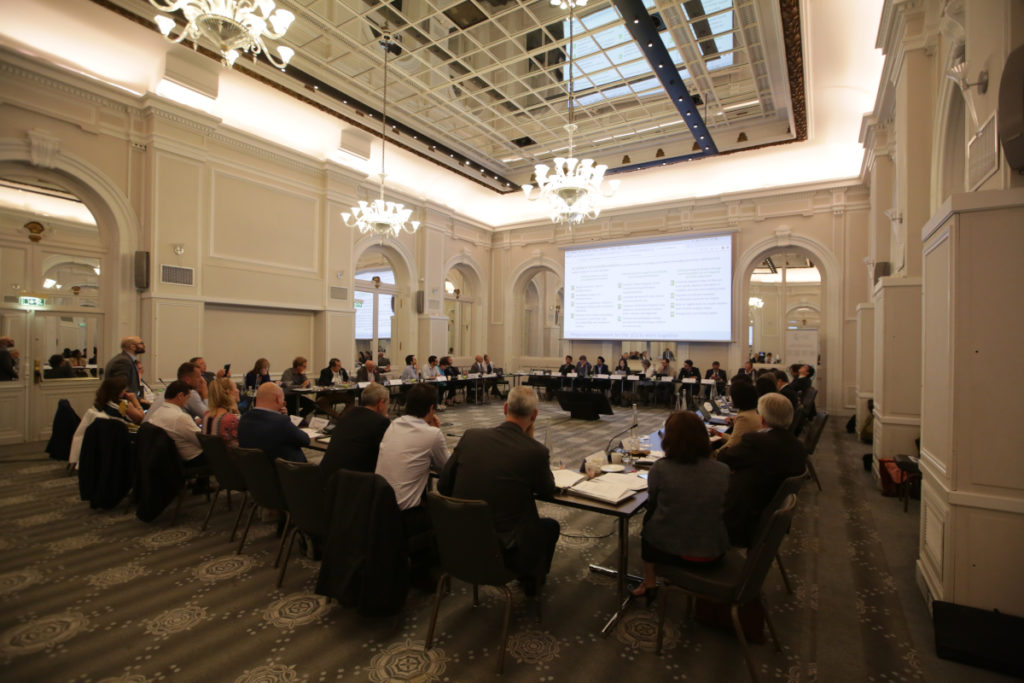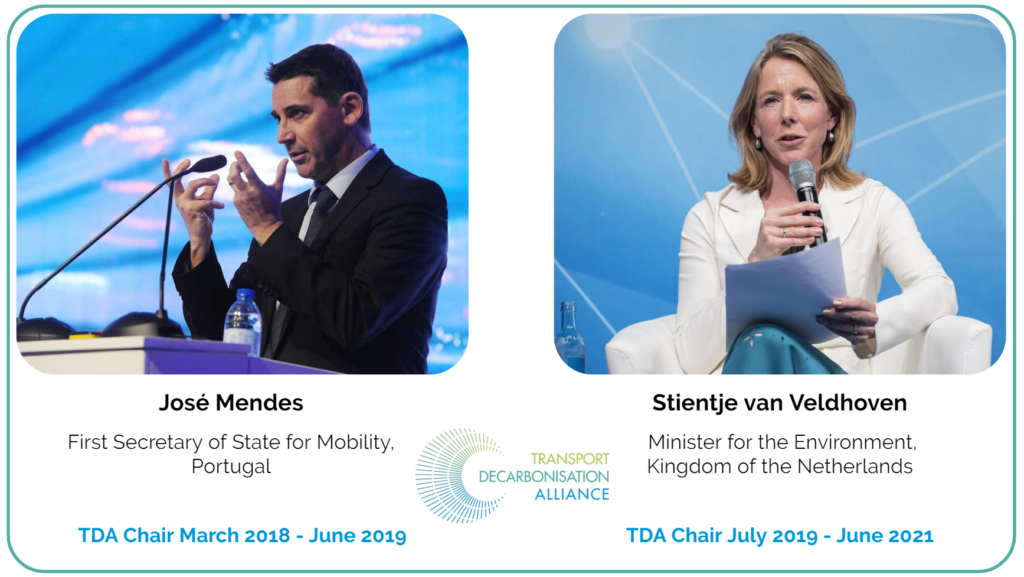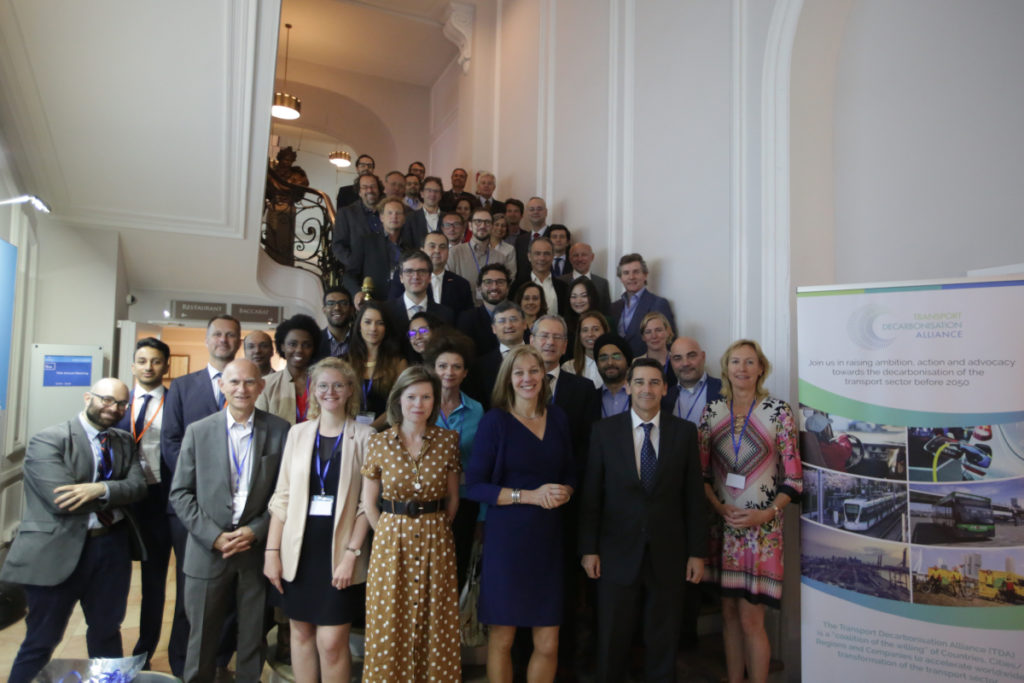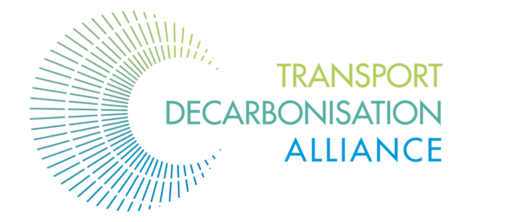The Transport Decarbonisation Alliance Annual Meeting 2019 focuses on the barriers to accelerating action
The Transport Decarbonisation Alliance (TDA) held its Annual Meeting on the 19th and 20th June 2019 in Paris, France. Countries, cities/regions and companies came together to assess the activities of the first year since the launch of the TDA and to take a look at the next steps and how to accelerate activities towards a net-zero emission mobility system before 2050.

The Annual Meeting was opened by Alexandra Bonnet, Deputy Director for European and International Affairs on behalf of the meeting hosts France and José Mendes, the outgoing Chairman of the TDA and the First Secretary of State for Mobility of Portugal.
During the first sessions each TDA member reported about their progress on transport decarbornisation and the challenges and barriers that they face in their work. Portugal reported that they were able to reduce the energy usage in transport by 15% in 2017 (compared to 2005) as the efficiency of most transport modes increased through the introduction of electric vehicles (buses and cars), active mobility policies and new public transport policies. The Netherlands is working towards phasing out gasoline and diesel car sales by 2030, transforming all buses to zero-emission buses by 2025, establishing zero emission zones in 30 cities by 2030 and to improve delivery in city centres.
The analysis of challenges and barriers faced by the TDA Members in accelerating transport decarbonisation set the scene for the discussions during the meeting.
Cabo Verde, the first African country Member, was introduced as one of the three most recent new TDA members. The Transport Decarbonisation Alliance has now 23 members spanning 4 continents.
The associated partners of the TDA at the Paris meeting were the Deutsche Gesellschaft für Internationale Zusammenarbeit (GIZ) GmbH, the Institute for Sustainable Development and International Relations (IDDRI), the International Transport Forum (ITF), the International Union of Railways (UIC) and World Business Council on Sustainable Development (WBCSD). The associated partners introduced their tools and activities to support the TDA in achieving its objectives. Among other guests were the La Rochelle Urban Community in France and TEVVA Motors.
An intensive session was dedicated to discuss the TDA Communities of Interests (CoIs), which allow TDA Members to work together on specific priority topics. Currently, the TDA has active CoIs on Executive education for transport decarbonisation, Fast-track to decarbonisation and Urban freight. The CoI on urban freight has just recently passed the 100,000 vehicle mark with 40 signatories in the Call for Zero Emission Freight Vehicles. With this call, countries, cities/regions and companies aim to show that there is a demand for zero emission freight vehicles as to accelerate the production of such vehicles and call upon fleet owners and operators in particular to sign the call for action.
Members sat together in smaller groups and brainstormed about the next activities in these CoIs. Ideas for new CoIs were discussed, as well as plans for how to help take existing CoIs to the next level.
A key moment was the decision of a new TDA chair: Stientje van Veldhoven, Minister for the Environment, Kingdom of the Netherlands, will take over from José Mendes, who served as the TDA chair for 18 months and supported the growth of the TDA and provided valuable leadership as the TDA became established. Stientje van Veldhoven will be the TDA chair from now until June 2021 during what will be critical period for climate action in transport if the Paris Agreement objectives are to be achieved.

At the Annual Meeting over 50 people representing 14 TDA members, 5 supporting organisations and the TDA Secretariat participated. We want to thank France, as well as Michelin and Alstom, for hosting the Annual Meeting and for their invaluable support.

